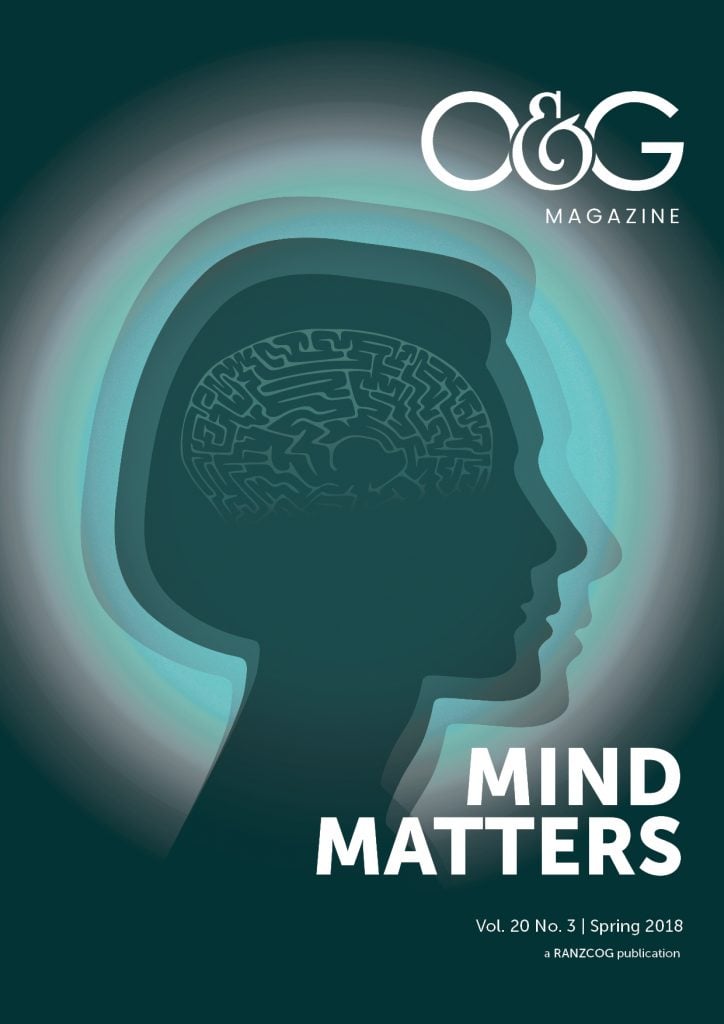The College has developed the Advanced Training Modules (ATMs) to provide more structure to FRANZCOG Advanced Training. FRANZCOG training was last reviewed by the College’s governing body, the Australian Medical Council, in 2013. One of the key recommendations of the accreditation report was to implement greater structure to Advanced Training. Complete flexibility is no longer tenable. All advanced trainees who commenced training on or after 1 December 2014 are required to complete a compulsory ATM prior to being awarded FRANZCOG. Information has been disseminated over the past three years through the Collegiate e-newsletter and the Training Bulletins.
Pathways to FRANZCOG
All trainees undertake the same basic (core) training. This can be viewed as progressing the trainee to senior registrar level across a broad scope of practice. On completion of basic training, the FRANZCOG trainee should be equipped to begin a position as an O&G senior registrar.
The College now recognises three distinct pathways to FRANZCOG. All pathways reach consultant level across the ‘common scope of practice’, but each has an additional scope of practice: academic, generalist or subspecialist. The new compulsory ATMs map to these scopes of practice.
Compulsory ATMs
For advanced trainees who elect to take the generalist pathway, satisfactory completion of both the Generalist Obstetric ATM and Generalist Gynaecology ATM is required. This means that these trainees will progress to consultant level across the generalist O&G scope of practice.
An advanced trainee pursuing the academic pathway will already have met the criteria for that pathway, which includes a PhD (or equivalent). They are required to complete the Essential O&G Skills ATM in order to reach consultant level across the common scope of practice.
Similarly, the subspecialty trainee electing to take the subspecialist pathway will need to complete the Essential O&G Skills ATM in order to formalise the attainment of consultant-level practice across the common scope of practice.
Why mandate the Essential O&G Skills ATM for subspecialty trainees?
This has perhaps been the most controversial aspect of the changes to advanced training. Why not let subspecialty trainees do only their subspecialty? The following is the rationale.
What is the scope of practice of a new Fellow on the day that FRANZCOG is awarded?
It is perfectly reasonable for credentialing committees to demand of the College that it define what it means to be awarded FRANZCOG. Currently, the College is unable to answer that question. In the future, the College will be able to say that all new Fellows have reached consultant level across the common scope of practice.
A subspecialist may continue to practise across the common scope of practice
Although this varies significantly between the various subspecialties, many subspecialists will elect to practice non-complex obstetrics and gynaecology outside of their subspecialty. Having only reached senior registrar level at the end of basic training, the Essential O&G Skills ATM should ensure that all new FRANZCOGs are able to practise at consultant level across this relatively restricted common scope of practice.
A subspecialty trainee might not complete subspecialty training
It is an unfortunate reality that many subspecialty trainees (approximately 30 per cent) do not complete subspecialty training for a variety of reasons. These differ across the subspecialties, but rates of non-completion are relatively high in some areas. In the absence of performing the common scope of practice at senior registrar level, the trainee may be in a position where they lack a scope of practice as a new Fellow. The trainee is neither a subspecialist nor a generalist, never having performed non-complex O&G at senior registrar level.
Could FRANZCOG be delayed until completion of subspecialty training? This is not possible as many subspecialty training pathways are dependent on consultant practice for the latter year(s) of training.
A subspecialist may be required to participate in the O&G on-call roster
A subspecialist may also be expected to perform simple office O&G at consultant level in the course of practising their subspecialty. It is very easy to focus tertiary hospitals in large cities, where it is uncommon (outside of MFM) for a subspecialist to be ‘on-call’ for the hospital. However, there are myriad circumstances that apply through various locations in Australia and New Zealand. There are sites where subspecialists participate on the on-call roster.
Do all subspecialists now need to retrain across the common scope of practice?
The prospect of retraining established subspecialists has caused needless alarm among both the subspecialists and those that would have to train them. The ability to practise at consultant level across the common scope of practice applies only to new Fellows on the day they acquire FRANZCOG. It is the role of credentialing committees to assess currency and CPD beyond FRANZCOG. However, credentialing committees are entitled to know what scope of practice was present on the day that FRANZCOG was awarded.
When must the compulsory ATMs be undertaken?
The compulsory ATMs can be undertaken anytime during Advanced Training, either part-time or full-time. The procedural requirements of the Essential O&G Skills ATM may be achievable through weekends on-call for an O&G unit or in a three-month block. We believe that this is achievable in Years 5 and 6, including those trainees who have commenced subspeciality training or are undertaking a year that is more geared towards gynaecology.
Special Interest ATMs
Optional Special Interest ATMs are available for those wanting to further develop an area of particular interest. They can be done in conjunction with the compulsory ATMs and include:
- Pelvic Floor Disorders (PFD-ATM)
- Hysteroscopic and Laparoscopic Surgery (HL-ATM)
- Contraception, Abortion and Sexual Health (SRH-ATM)
- Colposcopy (C-ATM).
For more information, visit FRANZCOG Training and Assessments on the College website.





Leave a Reply